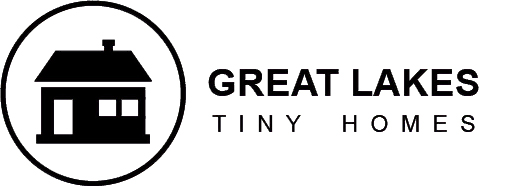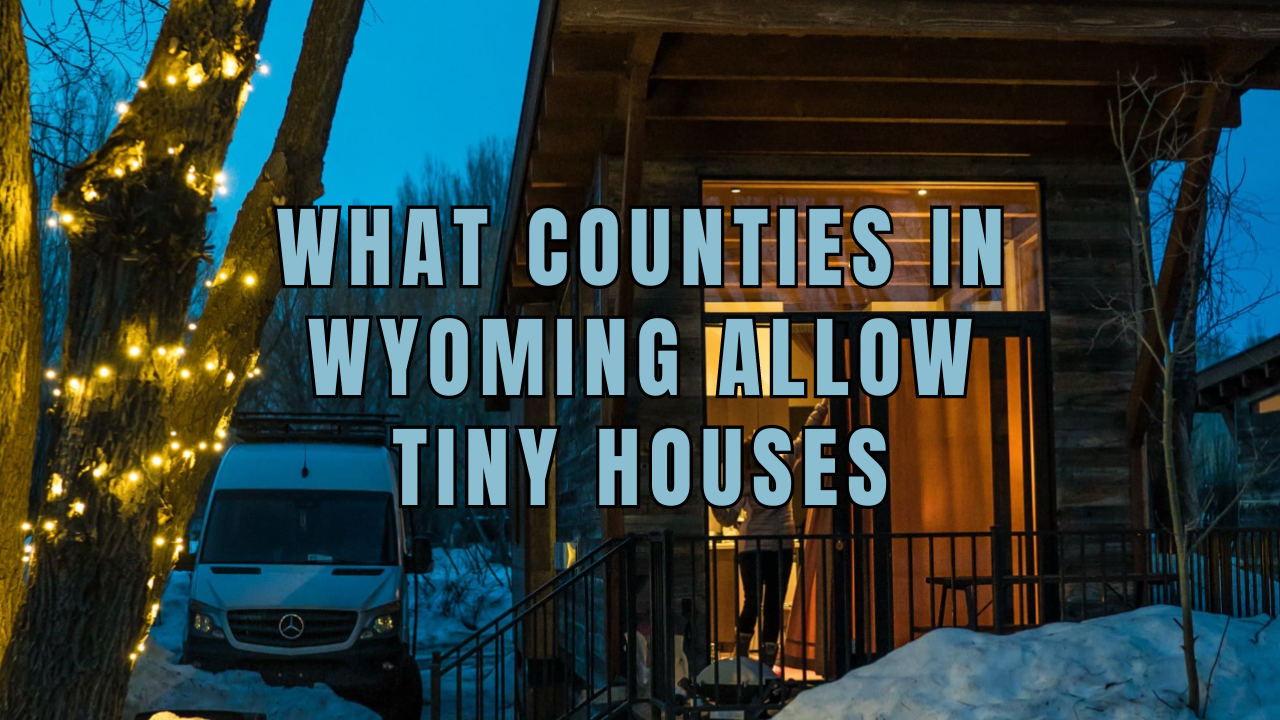In this article, you will explore the best counties in Vermont to buy a tiny home and the rules and regulations to consider. Vermont is a stunning state famous for its valleys filled with lakes, rural landscapes, and verdant mountains.
Recently, the state gained popularity as a place to live in a tiny home. Vermont has zoning and building standards and restrictions on the construction and habitation of tiny dwellings because of their increasing popularity.
Vermont Tiny House Prices
As soon as you begin building your tiny house, you undoubtedly want to know about reasonably priced options that satisfy your aspirations.
We provide options to suit every living style and price range to help you proceed with your living project. View all the available tiny houses in Vermont.
What Counties in Vermont Allow Tiny Houses?
In Vermont, each county has specific regulations and requirements for tiny house construction and placement. Check with local authorities before beginning a tiny house project! These counties offer a variety of landscapes and communities for tiny house enthusiasts to explore and settle in.
Windsor County
Windsor County makes specific mention of the tiny town. Their safety code law addresses small houses and establishes regulations in this area.
According to the law, small houses must adhere to the same rules for zoning, building laws, and taxes as other single-family homes. It implies that, in Windsor, small homes—whether they are tiny houses on wheels or a foundation—should likewise adhere to the measurements and specifications of conventional residences.
Windham County
Windham County has strict regulations that mandate all one-story residences to have a minimum square footage of 650 feet and all two-story structures to have a minimum square footage of 500 feet. As a result of these regulations, living in tiny houses is challenging in Windham County.
Many tiny house enthusiasts use a strategy to build an additional dwelling unit on a property where a house already exists, even if the unit is smaller than what is typically required for a one- or two-person residence. This approach has a vulnerability, though, which should be considered.
Tiny House Regulations And Rules In Vermont
Legally, tiny houses are categorized as mobile homes or RVs, making the construction process streamlined and tiny home living in Vermont more accessible.
In Vermont, local building laws and requirements are for building or buying a tiny house. These codes address every detail, including the building materials and housing size.
The regulations for permanent constructions, temporary tiny homes, and transitional structures are different.
Permanent Structure Rules
Tiny houses in Vermont are subject to the same regulations and rules as permanent structures for living full-time. They must comply with building codes, zoning laws, and health and safety requirements to follow the Vermont Building Code (VBC). While tiny houses offer a minimalist lifestyle, tiny houses are subject to the same standards as traditional homes in construction and placement.
- As accessory dwelling units or ADUs, several localities allow small dwellings. There is no minimum square footage restriction for small homes in Burlington.
- Along with having a sturdy roof, the tiny house has to be properly attached to the ground.
Temporary Structure Rules
In Vermont, some regulations govern the construction and placement of tiny houses, including the requirement that they be built on a foundation and have a minimum square footage. Additionally, temporary structure rules also apply, so it’s fundamental to thoroughly research and understand these guidelines before building or parking a tiny house in Vermont.
Temporary buildings, sometimes on trailers, are used for recreation and if their square footage is less than a particular limit, they do not need a construction permit. Furthermore, they follow the VBC and the regulations of the Vermont Motor Vehicle Administration (VMA).
- Vehicle Identification Numbers, or VINs, are a requirement for tiny mobile homes.
- The tiny house needs to tow the necessary trailer weight.
- Mobile homes are subject to the same regulations as residential developments and subdivisions under Brattleboro Land Use Regulations.
- City, county, and town sizes differ. For instance, Williston limits the size of tiny houses to 1,500 square feet.
Transitional Structure Rules
The regulations for tiny houses govern their size, location, and construction to ensure that they meet the building code standards and safety guidelines. These rules also address utility issues, sewage, and zoning to ensure that tiny houses fit within existing communities. Transitional constructions serve as temporary homes until a permanent option, but permission is necessary if they are for residential use.
Consider the following requirements:
- If the tiny residence aims to be stationary, it has to be firmly secured to the earth.
- It has a septic system authorized or linked to the sewer system.
- In addition, the tiny house needs a solid roofing system and adequate insulation.
In Vermont, Where Can I Build A Tiny House?
It is crucial to consider where to put the tiny dwelling. Choose a professional tiny house builder to help you with the procedure, handle all the paperwork, and guarantee that your home complies with all construction standards.
While constructing a tiny house is labor-intensive, it doesn’t have to be difficult if you prepare. The following locations are typical for tiny homes:
- RV parks
- National Parks and campgrounds
- Tiny house communities
- Private properties
Tiny Home Communities in Vermont
You access amenities and significantly reduce your living expenses and financial obligations by residing in a tiny home community. It also facilitates the formation of sincere friendships with new individuals in the small town.
Ten Stones
Ten Stones is a sustainable co-housing community spanning many generations in Charlotte, Vermont. It was started by seventeen lowly families who desired to live in a tiny home as a community. The 87.4 acres of woods, meadow, and conserved agricultural land that make up Ten Stones are 16 grouped, individually owned, half-acre house plots with tiny buildings.
The neighborhood’s residents are close-knit and strive to balance privacy and community. Members often have strong ties to the land and choose to reside in a rural setting in the center of the Champlain Valley. Every community member participates in the process of reaching a consensus when making decisions.
Headwaters Garden & Learning Center
In Cabot, Vermont, there is an intentional community called Headwaters Garden & Learning Center. The ecovillage is for entertainment and therapeutic activities to promote sustainable living to the general public.
Eight separate residences make up the community: small houses, single-family homes, tents, a treehouse, domes, tee-pees, a yurt, and extra lots for future construction. By working on construction projects, tending to the land, raising children, farming food, and many other tasks, members contribute to the workload of the community.
Tiny House Builders Near Me
Great Lakes Tiny Homes offers a variety of small homes that can be shipped worldwide, making it easier for you to find the perfect one.
Moreover, the RV Industry Association (RVIA) recognized Great Lakes Tiny Homes as a builder. Backing up the dedication to upholding the strictest construction, safety, and regulatory requirements for tiny houses and the best production standards.
Do I Need a Certified Builder?
Yes, without a doubt!
Working with an RVIA-certified builder, like Great Lakes Tiny Homes, ensures that your tiny home complies with all relevant laws and guidelines.
It also guarantees that your home’s materials are the best possible—strong, secure, and long-lasting.
Working with a qualified builder also has the added benefit of access to finance and insurance alternatives. An RVIA-compliant tiny home ensures a secure living environment.
FAQs
Can You Make a Tiny House in Vermont Your Main Residence?
It is possible to permanently accommodate a tiny house in Vermont.
However, follow every pertinent local law and ordinance. The best course of action is to contact your local zoning and authorities to see whether your tiny home complies with all applicable laws, including inspection requirements.
If you do your homework and work with licensed builders in Vermont, you can discover the advantages of living a simpler, more environmentally friendly lifestyle.
What Are the Benefits of Living Tiny in Vermont?
Being a tiny house owner has several special advantages. Many individuals are drawn to these homes by a simple lifestyle, yet they are unconscious of the many perks these homes offer, such as:
- Tiny homes are significantly less expensive to build and maintain compared to standard homes, with an initial cost of around $30,000 to $60,000 (not counting land or other costs).
- Environmentally friendly, tiny houses use less energy and frequently utilize wind and solar electricity.
- Compared to regular dwellings, tiny houses offer homeowners greater freedom by enabling them to move at a given moment.
- Homeowners may clean a tiny house in an hour since they are easy to maintain.
In Vermont, How Small Can a Home Get?
In Vermont, tiny homes range in size from town to town, county to county, and city to city. Tiny dwellings typically have a minimum area of 100 square feet and a maximum of 1,000 square feet.
Where you want to put your small house also impacts its size. Check with local authorities before constructing a tiny home in rural areas, as regulations vary between cities and towns.
Conclusion
In conclusion, people who wish to take advantage of Vermont’s rural charm and natural beauty find tiny home living a viable and fascinating alternative. However, they must be informed of the laws and ordinances about tiny home building and residency in Vermont before pursuing their tiny house adventure. Tiny houses could be subject to various construction standards and zoning laws that depend on the type, size, and location.





